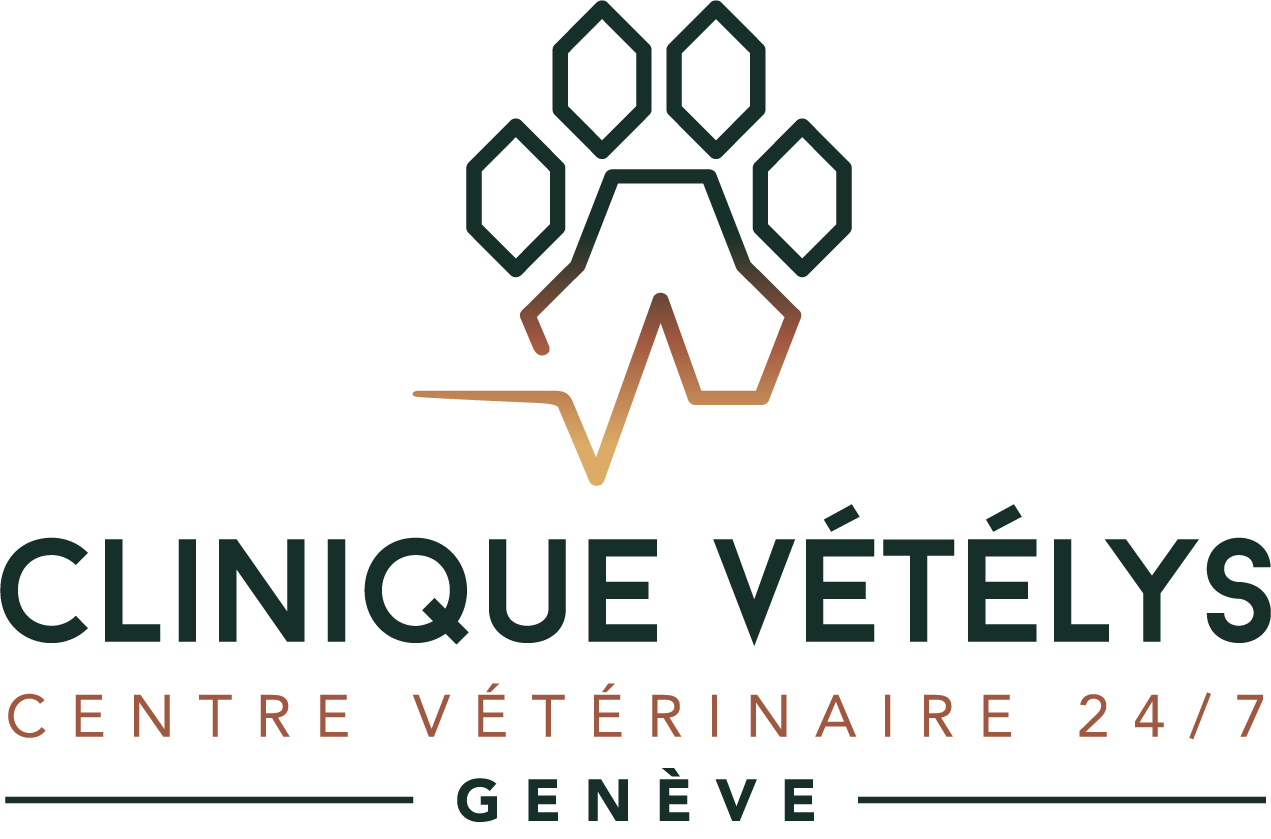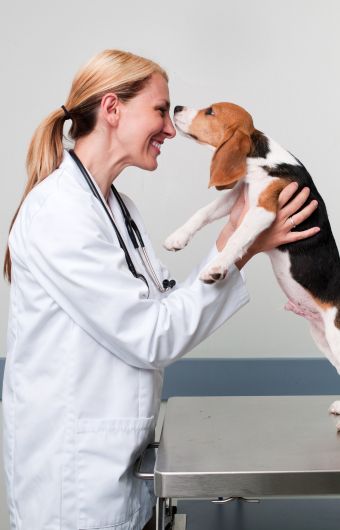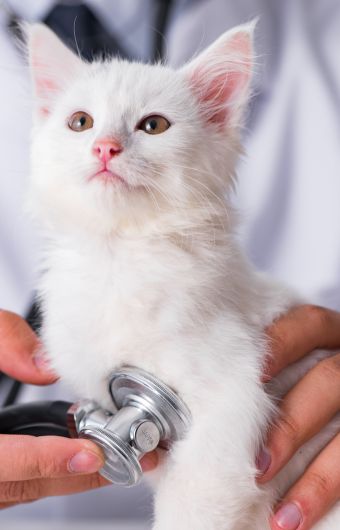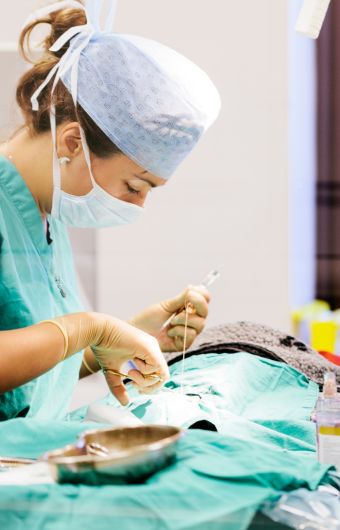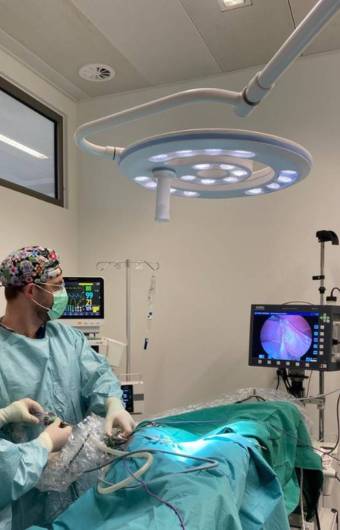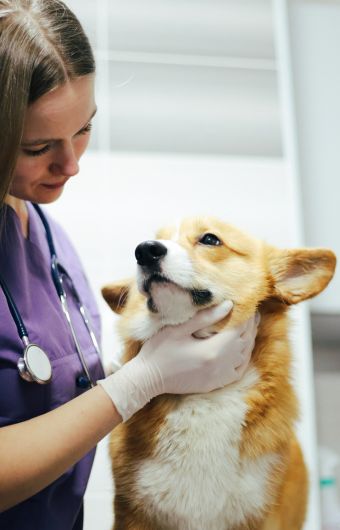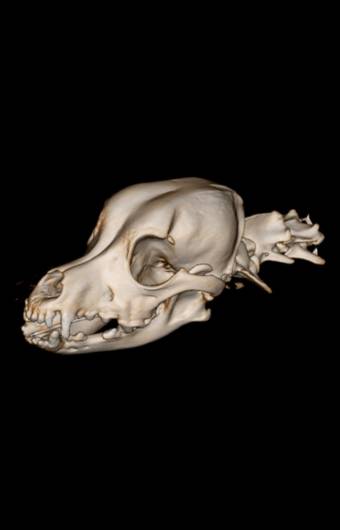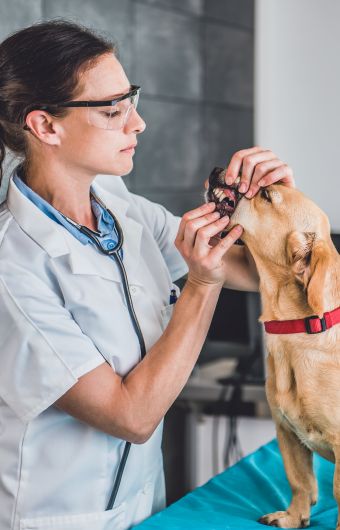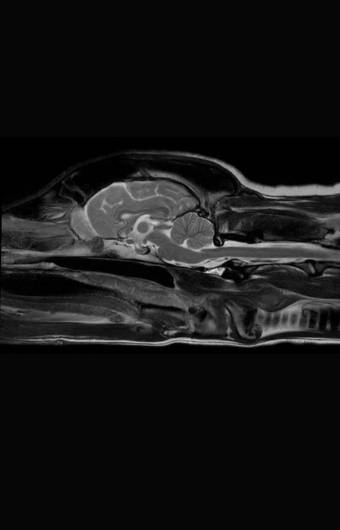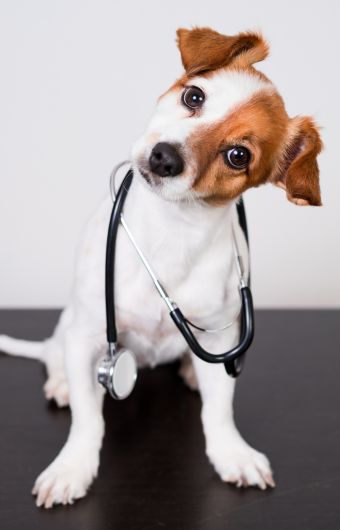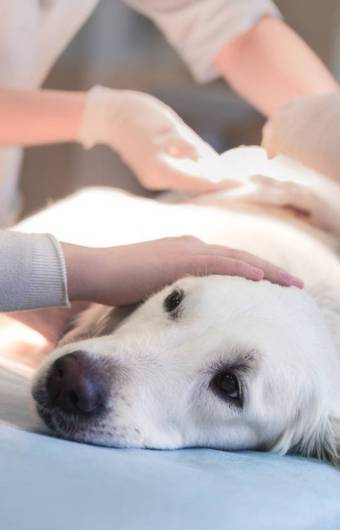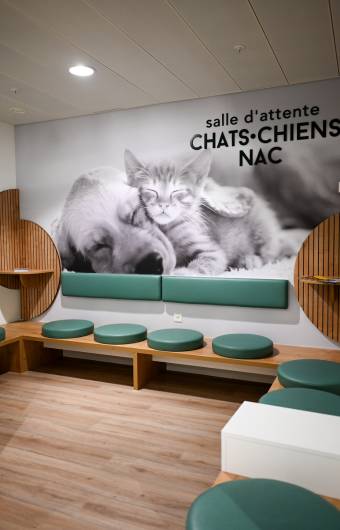Veterinary hospitalization and intensive care in Geneva Vernier
When your pet needs ongoing medical attention, our hospitalization and intensive care unit offers a secure environment and highly specialized care. Located in Vernier – Geneva, the Vétélys clinic is equipped to respond to all critical situations, whether stabilizing a patient in an emergency or monitoring an animal requiring convalescence under supervision.
Our teams are on hand 24/7 to look after the health and well-being of your pets, providing constant monitoring and personalized treatment tailored to each situation.
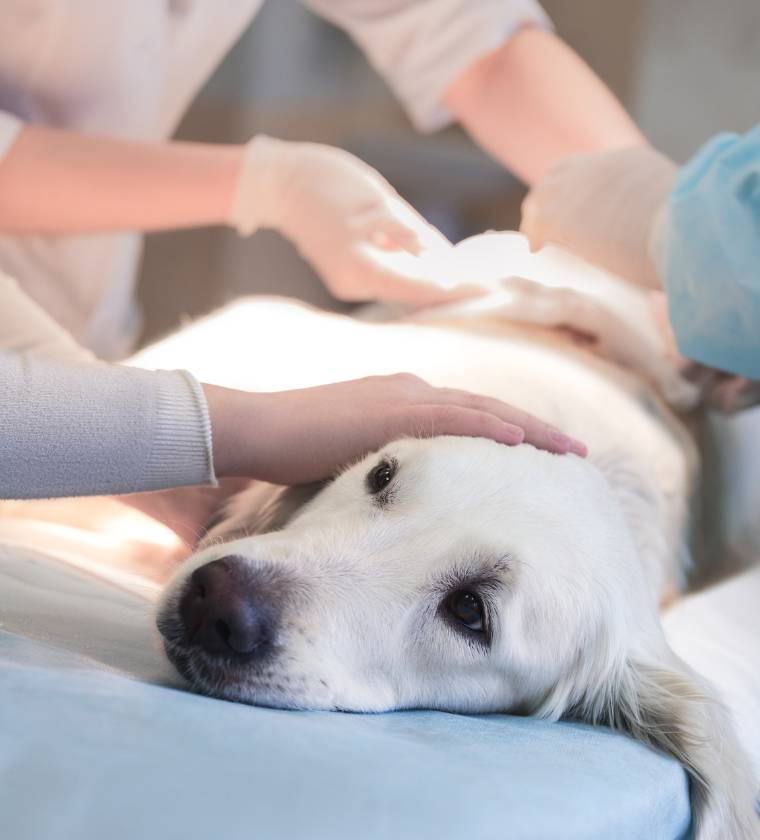
Veterinary hospitalization and intensive care Vernier Geneva
When to seek hospitalization or intensive care for your pet
?
Is your pet in a worrying condition? Find out the main reasons to contact our hospilization and intensive care service in Geneva and be cared for by one of our vets.
Main indications for veterinary hospitalization:
- Post-surgical follow-up: monitoring after major operations (orthopedic,
thoracic, abdominal). - Chronic or acute pathologies: ketoacid diabetes, acute renal failure, pancreatitis
pancreatitis, heart disease… - Serious injuries or polytrauma: accidents, deep bites, multiple fractures.
- Nutritional support and hydration: tube feeding, infusion for severe dehydration.
- Critical conditions: septic shock, acute neurological disorders, heart attack, poisoning.
Hospitalization enables optimal follow-up through continuous monitoring and rapid treatment adjustments if necessary.
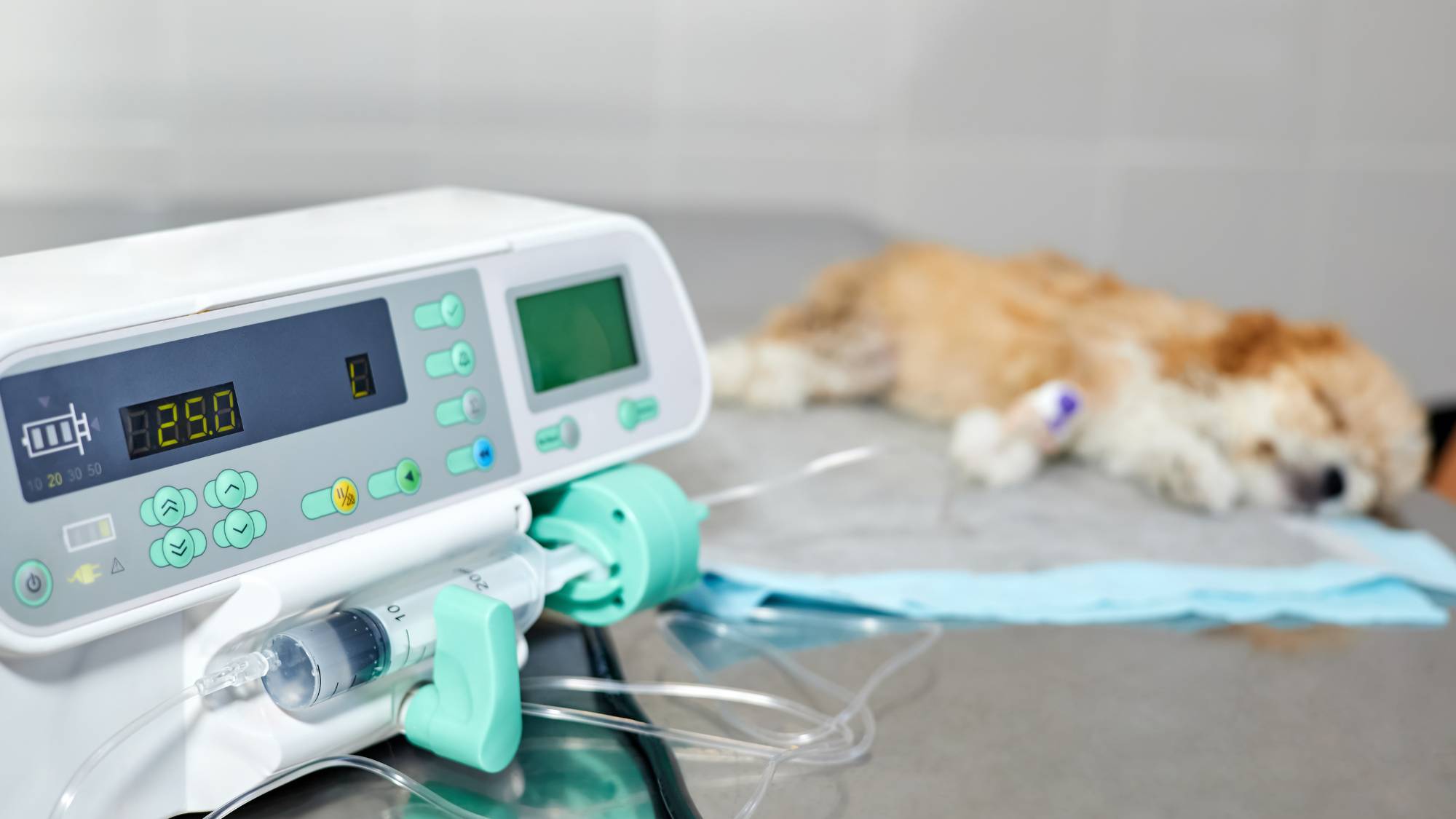
Veterinary hospitalization and intensive care in Vernier Geneva
Our equipment and protocols in veterinary intensive care
Find out about the main hospitalization and intensive care equipment and protocols in Geneva for your pet.
State-of-the-art medical equipment
- Multiparametric monitors: for continuous monitoring of heart rate, respiratory rate and oxygen saturation.
- Infusion pumps: precise administration of intravenous drugs and fluids, CRI.
- Oxygen therapy: for animals in respiratory distress.
- Heating mats: for hypothermic patients or fragile newborns.
- In-house blood analyzers: immediate assessments (hematology, biochemistry, blood gases).
Specific care
- Pain management: advanced analgesic protocols to improve animal comfort, continuous morphine infusion (fentanyl, etc.).
- Infection management: intravenous antibiotic therapy.
- Nutritional care: tube feeding (nasogastric or esophageal) in case of anorexia or inability to eat.
- Management of neurological emergencies: epileptic seizures, head trauma.
Emergencies 24/7
Veterinary hospitalization and intensive care in Geneva Vernier
Veterinary hospitalization in Geneva
A veterinary emergency consultation in Geneva is divided into 4 stages: admission and initial assessment, daily follow-up, communication with the owner, then discharge and recommendations.
Admission and initial assessment
- Animal’s clinical condition analyzed by our veterinarians.
- Establishment of an individualized care plan.
Daily monitoring
- Constant monitoring of vital parameters.
- Adjustment of treatments according to observed progress.
Communication with the owner
- Regular reports on the progress of the animal’s health.
- Availability for visits.
- Advice on post-discharge care.
Output and recommendations
- Explanation of home care and necessary prescriptions.
- Organization of post-hospital follow-up.
Answers to your questions
Find out more about Vétélys’ veterinary hospitalization service
Will my pet be stressed during hospitalization?
We do everything possible to reduce your companion’s stress: separation of species, spacious and comfortable boxes, reduction of noise stimuli, gentle and frequent handling, etc.
Can I visit my hospitalized pet?
Yes, we encourage visits. They are organized so as not to disrupt ongoing care and to give your pet a moment of comfort.
How long does it take to recover from hospitalization?
This depends on the pathology and the severity of the initial condition. Discharge is envisaged as soon as your pet can be comfortably cared for at home.
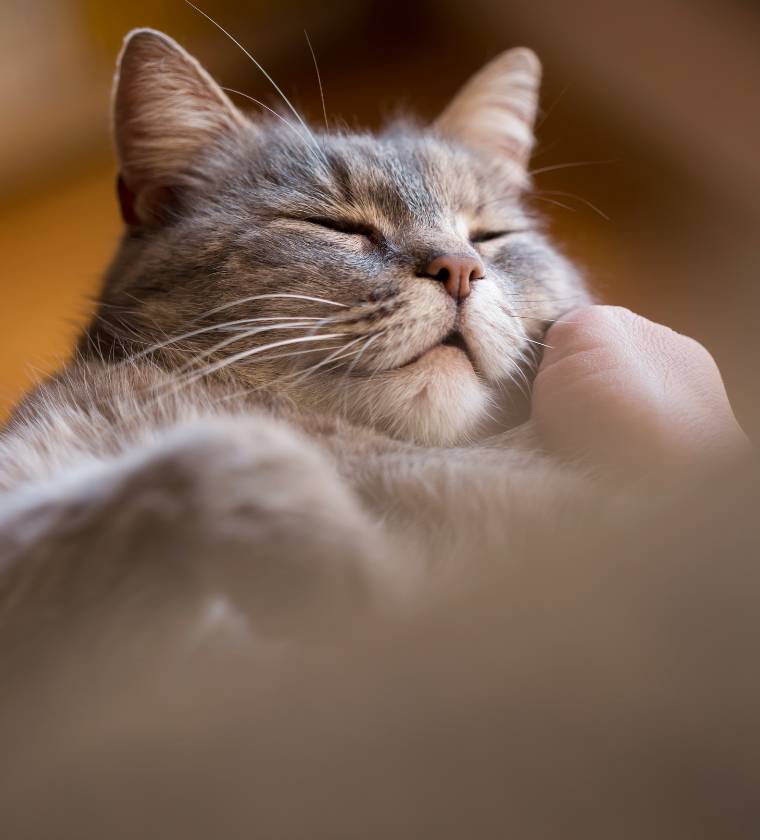
Testimonials
They’ve been to Clinique Vétélys
Our dog was hospitalized for several days with acute pancreatitis. We were kept informed every step of the way. He’s now in great shape!
Experts view
Here are a few tips for owners of hospitalized pets:
- Contact our teams: ask any questions you may have to better understand the situation. Our team is at your disposal.
- Prepare the environment at home: ensure a calm and suitable space for your pet’s return. If movement is restricted, provide a room free of furniture, a playpen or a large cage.
- Respect the prescriptions: regular home care is essential for optimal recovery.
Dr. Méd. Vét. Margane Gadallier, veterinary surgeon in charge of the hospitalization department, advises :
“Intensive care is not just an emergency response. They allow us to monitor every detail and ensure comprehensive management, which is essential for complex cases.”
Consultations
-
Standard hospital day: CHF 200 to 300 (includes basic care, monitoring).
-
Intensive care hospitalization: CHF 400 to 600 (includes oxygen therapy, complex infusions).
Additional care: detailed estimate based on specific needs (examinations, surgery, treatments).Our teams provide a detailed, transparent estimate as soon as the animal is admitted.
Clinic specialties
Discover our other specialties
